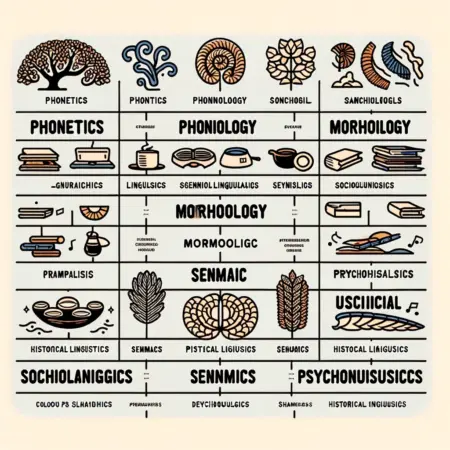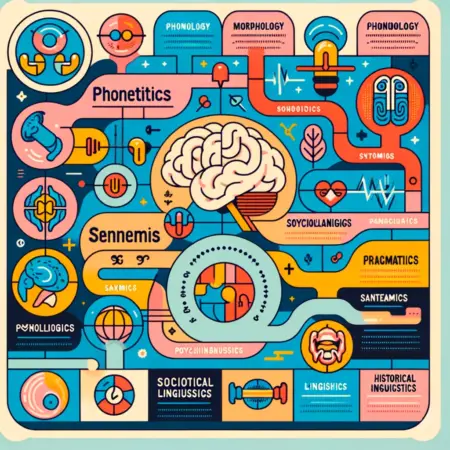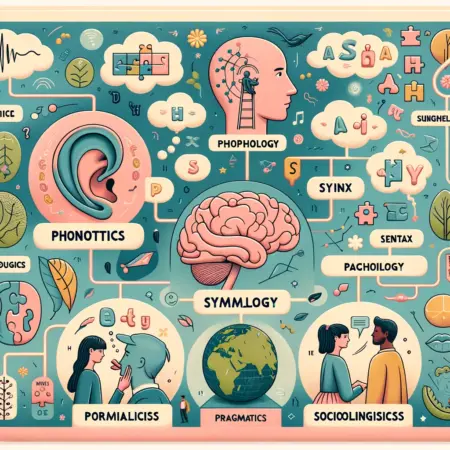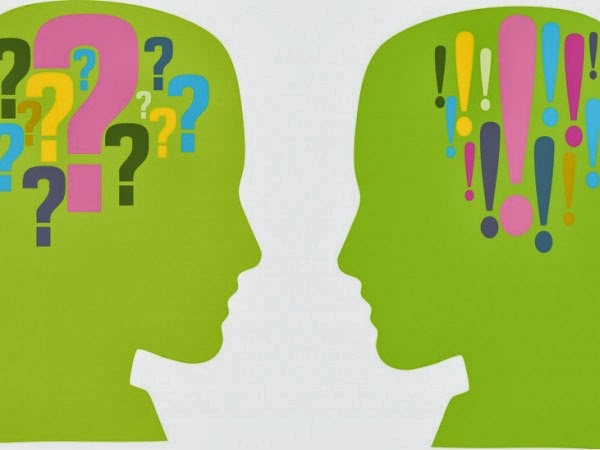Branches OF Linguistics that every student must know. Linguistics is the discipline that studies the language in broad and general prospective. Broadly means the scope which covers all aspects and components of language. Generally means the goal is not just limited to one language only, but all languages of the world.

Human language is the unique characteristic of our species, has been of interest throughout history. The scientific study of human language is called linguistics. A linguist, then, is not someone who speaks many languages (although many linguists do); such individuals are polyglots. A linguist is a scientist who investigates human language in all its facets, its structure, its use, its history, its place in society. The form and structure of the kinds of linguistic knowledge speakers possess is the concern of theoretical linguistics. This theory of grammar – the mental representation of linguistic knowledge – is what this textbook is about. But the field of linguistics is not limited to grammatical theory; it includes a large number of subfields, which is true of most sciences concerned with phenomena as complex as human language.
Facts You Must Know About 5 Real Branches Of Linguistics.

Theoretical Linguistics (the concern of this textbook), often referred to as generative linguistics, has its basis in views first put forth by Chomsky’s 1955 The Logical Structure of Linguistic Theory. In this and the subsequent books and articles by Chomsky and those that embraced these views, a major aim was to characterize the nature of human linguistic knowledge or competence (represented in the mind as a mental grammar); that is, to explain or account for what speakers know which permits them to speak and comprehend speech or sign (the languages of the deaf). The production and comprehension of speech is referred to as performance, distinct from competence but dependent on it.
Descriptive linguistics provides analyses of the grammars of languages such as Choctaw, Arabic, Zulu. ‘Indo-European-linguistics,’ ‘Romance linguistics,’ ‘African linguistics,’ refer to the studies of particular languages and language families, from both historical and synchronic points of view. Historical linguistics is concerned with a theory of language change – why and how languages develop. The comparative method, developed in the nineteenth century by such philologists as the brothers Grimm and Hermann Paul, is a method used to compare languages in the attempt to determine which languages are related and to establish families of languages and their roots.
Anthropological or ethno-linguistics and sociolinguistics focus on languages as part of culture and society, including language and culture, social class, ethnicity, and gender. Dialectology investigates how these factors fragment one language into many. In addition, sociolinguistics and applied linguistics are interested in language planning, literacy, bilingualism, and second language acquisition. Applied linguistics also covers such areas as discourse and conversational analysis, language assessment, Language pedagogy.
Computational linguistics is concerned with natural language computer applications, e.g. automatic parsing, machine processing and understanding, computer simulation of grammatical models for the generation and parsing of sentences. If viewed as a branch of Artificial Intelligence (AI), computational linguistics has the goal of modeling human language as a cognitive system.
Mathematical linguistics studies the formal and mathematical properties of language. Pragmatics studies language in context and the influence of situation on meaning. Neurolinguistics is concerned with the biological basis of language acquisition and development and the brain/mind/language interface. It brings linguistic theory to bear on research on aphasia (language disorders following brain injury) and research involving the latest technologies in the study of brain imaging and processing (CT, PET, fMRI, MEG, ERP).
Psycholinguistics is the branch of linguistics concerned with linguistic performance – the production and comprehension of speech (or sign). An area of Linguistics: The Scientific Study of Human Language 5 psycholinguistics, which in some ways is a field in its own, is child language acquisition – how children acquire the complex grammar which underlies language use. This is a subject of major concern, particularly because of the interest in the biology of language.
Branches of linguistics can be organized into a tabular format to provide a clear and structured overview. Here’s a basic guide:

| Branch of Linguistics | Description |
|---|---|
| Phonetics | Study of the physical sounds of human speech |
| Phonology | Analysis of how sounds function within a given language |
| Morphology | Examination of the structure and formation of words |
| Syntax | Investigation of the structure of sentence formation |
| Semantics | Exploration of meaning in language |
| Pragmatics | Study of how context influences the interpretation of meaning |
| Sociolinguistics | Analysis of how language varies and changes in social groups |
| Psycholinguistics | Study of the psychological processes related to language comprehension and production |
| Computational Linguistics | Application of computational techniques to analyze and model linguistic data |
| Historical Linguistics | Investigation of language change over time |
| Applied Linguistics | Application of linguistic theory to practical problems, like language teaching |
Each branch focuses on a specific aspect of language, contributing to our overall understanding of linguistics as a comprehensive field.
Conclusion
Although the Grammar Translation Method may not be the most suitable approach for language learning, it offers valuable advantages in the field of linguistics. Through its historical context, focus on grammar analysis, emphasis on translation skills, promotion of analytical thinking, and guidance for language teaching, the GTM plays a significant role in advancing linguistic research and understanding.
